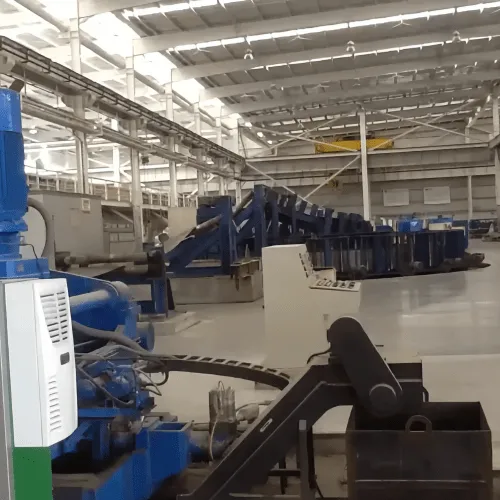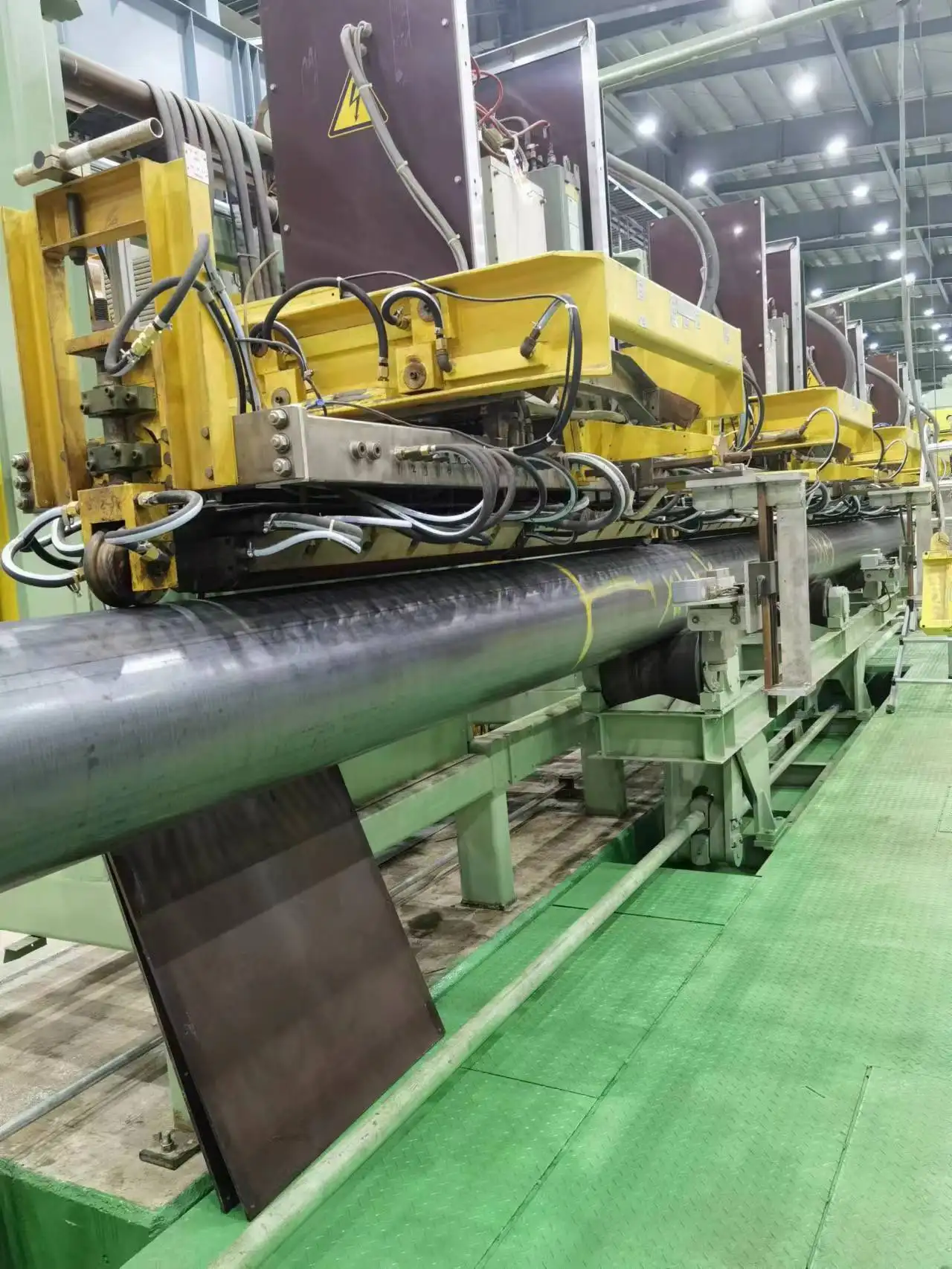Essential Capabilities of Advanced Steel Pipe Manufacturing Equipment
Modern manufacturing demands have revolutionized the way we approach steel pipe production. Today's steel pipe making machines combine cutting-edge technology with precision engineering to deliver superior quality products while maximizing operational efficiency. Understanding these crucial features is essential for manufacturers looking to upgrade their production capabilities or enter the steel pipe manufacturing industry.
The evolution of steel pipe making machines has been driven by increasing demands for higher production speeds, better quality control, and enhanced automation capabilities. These advancements have transformed traditional manufacturing processes into sophisticated operations that can meet the exacting standards of various industries, from construction to oil and gas.
Automated Control Systems and Smart Manufacturing Integration
Advanced PLC Systems and Touch Screen Interfaces
Modern steel pipe making machine systems feature sophisticated Programmable Logic Controllers (PLC) that offer unprecedented control over the manufacturing process. These systems provide real-time monitoring and adjustment capabilities, allowing operators to fine-tune production parameters with exceptional precision. The integration of user-friendly touch screen interfaces makes it easier for operators to manage complex operations while reducing the learning curve for new personnel.
Smart manufacturing integration enables seamless communication between different components of the steel pipe making machine, creating a more coordinated and efficient production environment. This connectivity allows for better data collection, analysis, and process optimization, ultimately leading to improved product quality and reduced waste.
Remote Monitoring and Predictive Maintenance
Today's steel pipe making machines come equipped with advanced sensors and monitoring systems that enable remote observation of production processes. This capability allows manufacturers to track machine performance, identify potential issues before they become problems, and maintain optimal production conditions from anywhere in the world.
Predictive maintenance features use artificial intelligence and machine learning algorithms to analyze operational data and predict when maintenance will be needed. This proactive approach helps prevent unexpected downtime and extends the equipment's operational life while reducing maintenance costs.
High-Precision Forming and Welding Technology
Advanced Forming Systems
State-of-the-art steel pipe making machines incorporate sophisticated forming technology that ensures consistent pipe geometry and superior structural integrity. Multiple forming stages work in perfect synchronization to gradually shape the steel strip into the desired pipe configuration, while advanced sensors continuously monitor and adjust the process to maintain precise dimensional accuracy.
The latest forming systems also feature quick-change capabilities that allow manufacturers to switch between different pipe sizes with minimal downtime, enhancing production flexibility and efficiency. This adaptability is crucial for manufacturers who need to respond quickly to changing market demands.
High-Frequency Welding Technology
Modern steel pipe making machines utilize advanced high-frequency welding systems that produce stronger, more reliable welds compared to traditional methods. These systems precisely control the heat input and pressure during the welding process, resulting in consistent weld quality and reduced defect rates.
The integration of real-time weld monitoring systems allows for immediate detection of potential welding issues, enabling quick adjustments to maintain product quality. This technology has significantly reduced the need for post-weld inspection and rework, improving overall production efficiency.
Quality Control and Testing Features
Inline Testing and Inspection Systems
Advanced steel pipe making machines incorporate comprehensive inline testing systems that ensure every pipe meets required quality standards. These systems typically include ultrasonic testing, eddy current testing, and dimensional measurement equipment that operate continuously during production.
Real-time quality data collection and analysis enable immediate corrective actions when deviations are detected, minimizing waste and ensuring consistent product quality. The integration of automated marking systems helps identify and track individual pipes throughout the production process.
Advanced Material Handling and Finishing
Modern machines feature sophisticated material handling systems that protect pipe surface quality throughout the manufacturing process. Automated loading and unloading systems, along with precision finishing equipment, ensure that the final product meets exact customer specifications.
The implementation of advanced coating and treatment systems directly into the production line allows for complete pipe finishing without the need for secondary processing, increasing overall production efficiency and reducing handling damage.

Energy Efficiency and Sustainability Features
Power Management Systems
Today's steel pipe making machines incorporate advanced power management features that optimize energy consumption while maintaining high production rates. Variable frequency drives and smart power distribution systems ensure that energy is used efficiently throughout the manufacturing process.
The integration of energy recovery systems helps reduce overall power consumption by capturing and reusing energy from various production processes. This not only reduces operating costs but also contributes to more sustainable manufacturing practices.
Environmental Control Systems
Modern machines include sophisticated environmental control systems that minimize waste and emissions during the production process. Advanced filtration and recycling systems help reduce the environmental impact of manufacturing operations while ensuring compliance with increasingly stringent environmental regulations.
The implementation of closed-loop cooling systems and waste material recovery features further enhances the sustainability of pipe manufacturing operations, making these machines more environmentally responsible.
Frequently Asked Questions
What is the typical production capacity of a modern steel pipe making machine?
Modern steel pipe making machines can typically produce between 30 to 120 meters of pipe per minute, depending on the pipe size and specifications. Advanced systems can achieve even higher production rates while maintaining consistent quality standards.
How does automated quality control impact production efficiency?
Automated quality control systems significantly improve production efficiency by reducing the need for manual inspection, minimizing waste, and enabling real-time process adjustments. This can lead to efficiency improvements of up to 30% compared to traditional manufacturing methods.
What maintenance requirements should be considered for modern pipe making equipment?
Modern steel pipe making machines require regular preventive maintenance, including system calibration, wear part replacement, and software updates. However, predictive maintenance features and modular design elements make maintenance tasks more straightforward and less time-consuming than with older equipment.

